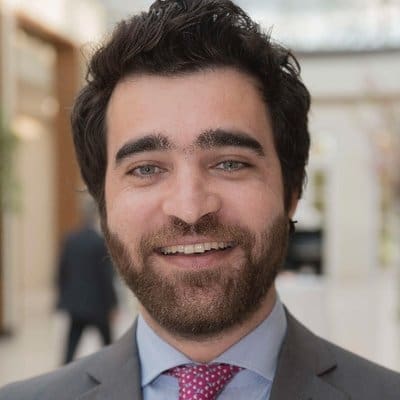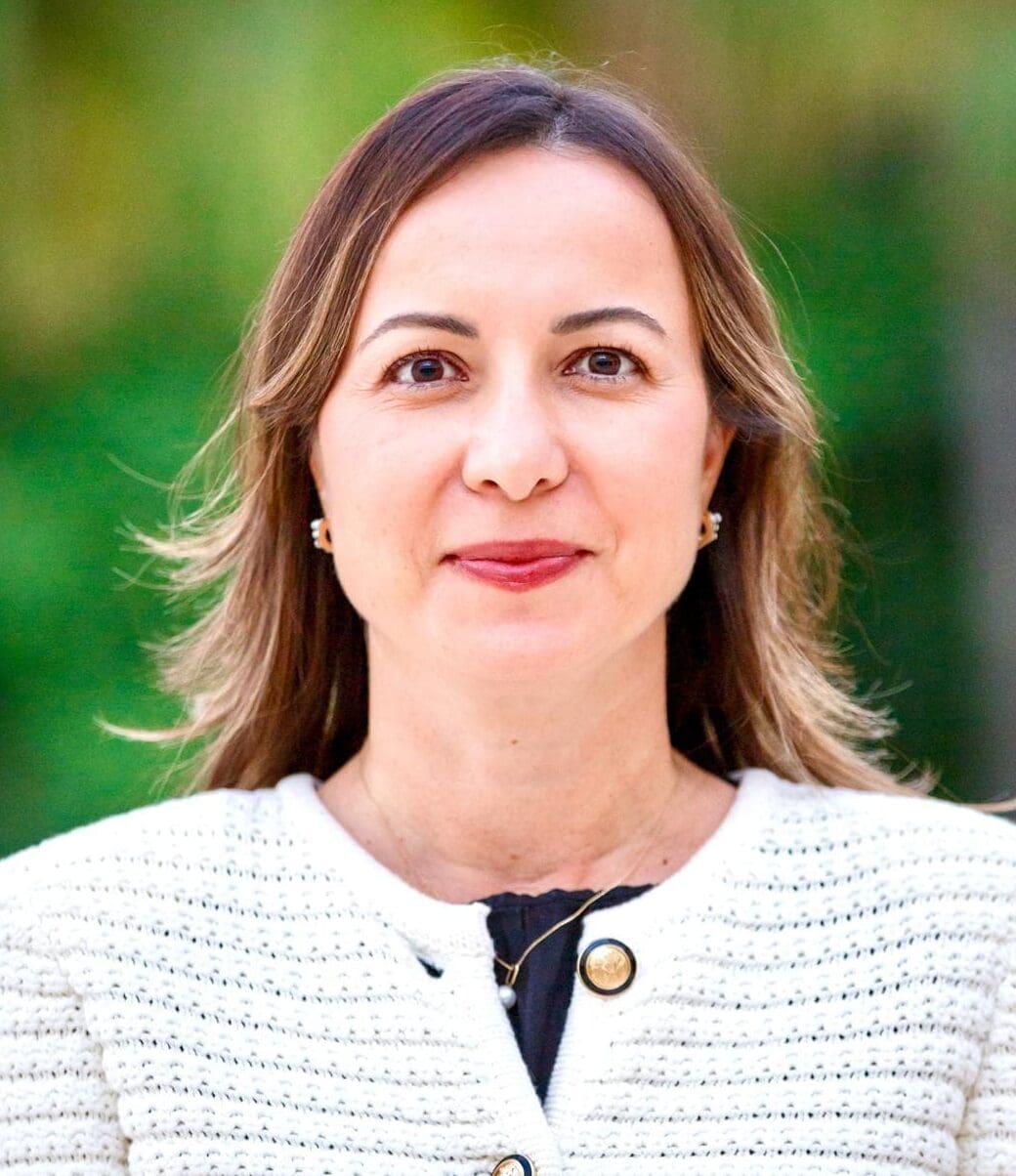Building a New Syria After the Assad Regime
January 15, 2025
Summary
The fall of the Assad regime in Syria marks a critical turning point, ushering in a complex era of change and uncertainty. As the country begins its delicate transition, many challenges and opportunities will shape its political, social, and economic landscape. Under Ahmad al-Sharaa (formerly Abu Mohammed al-Jolani), Hei’at Tahrir al-Sham (HTS) has played a key role in orchestrating the regime’s collapse and now works to navigate the transitional process, drawing largely on its governance experience in Idlib. Alongside other rebel factions, HTS has consolidated control over significant parts of the country, redefining Syria’s political landscape as regional and global actors recalibrate their strategies. A critical challenge remains ensuring the voluntary, safe, and dignified return of refugees, many still hosted as temporary guests in neighboring countries.
The Middle East Council on Global Affairs organized a webinar to explore how Syria can navigate the challenges of fostering security, state-building, inclusive governance, minority protection, humanitarian relief, and economic recovery, despite decades of Ba’athist rule and the lasting impact of a 13-year civil conflict since 2011. This webinar will also examine the implications on Palestine and Lebanon, emphasizing Iran-backed resistance to Israel’s territorial ambitions contributing to rising regional tensions. It will also address regional relations with Syria’s Northeast and border security with Jordan, Iraq, Türkiye, and Israel.
This webinar, part of a series by the ME Council, invites leading experts to provide evidence-based insights into Syria’s transitional trajectory, addressing the broader implications for regional stability and global policy.
Moderator: Özge Genç, Visiting Fellow
Speakers:
- Arwa Damon, American journalist, Senior International Correspondent
- Haid Haid, Senior Consulting Associate Fellow, Chatham House
- Hafsa Halawa, Non-Resident Scholar, Middle East Institute
- Marwan Kabalan, Director of Policy Analysis at the Arab Centre for Research and Policy Studies
Haid Haid, Senior Consulting Associate Fellow, Chatham House
- The collapse of the Assad regime was not a sudden occurrence but the result of over a decade of resistance by various groups. Armed, political, and civil society factions all contributed to this struggle, and their inclusion in the future governance structure is crucial for stability.
- The Syrian Democratic Forces (SDF) and Syrian National Army (SNA) remain critical players, controlling substantial territory and wielding significant influence. Ensuring their cooperation is not only vital for territorial unification but also for maintaining long-term peace. Failing to include them in the political framework risks continued fragmentation and instability.
- HTS (Hay’at Tahrir al-Sham) has transitioned from being a militant organization to a political entity but still struggles with unifying opposition factions. Its controversial history with extremist ideologies and practices creates skepticism among domestic and international actors.
- Political actors like the Syrian Opposition Coalition and the High Negotiation Commission are central to shaping the political transition. Yet, they remain divided on how to integrate their roles with HTS’s plans for governance. Building consensus among these factions is a key challenge for moving forward.
- A major issue in the integration process is the disagreement over group versus individual participation. While HTS prefers individuals to join the system, opposition groups insist on joining as collective entities. Resolving this tension is vital for creating a unified political framework.
- Despite HTS’s claims of inclusivity and reforms, international skepticism remains high due to its past governance practices. Western actors are cautious about engagement, and concrete benchmarks for inclusivity and minority representation are yet to be defined.
Marwan Kabalan, Director of Policy Analysis at the Arab Centre for Research and Policy Studies
- Reestablishing stability in Syria requires progress on three interconnected fronts: security, governance, and economic recovery. These pillars must advance simultaneously, as neglecting one risks undermining the others.
- Armed factions like the SDF and other militias insist on constitutional guarantees and clear roles in Syria’s future before agreeing to disarm. Their cooperation is vital for transitioning from fragmented armed control to a centralized security apparatus.
- A comprehensive political framework is essential for lifting sanctions and attracting foreign investment. Without such a framework, reconstruction and economic recovery will remain out of reach.
- While the transitional government’s rhetoric has shifted to emphasize national dialogue and constitutional reform, implementation remains a challenge. Talks of a constitutional committee and inclusive governance are promising but must be backed by actionable steps. The success of these reforms will depend on their ability to address the needs of all Syrians.
- The Alawite and Kurdish questions remain unresolved, posing significant risks to long-term unity. Without addressing these issues, the potential for renewed conflict and further instability remains high.
- External actors, including the U.S. and regional powers, will play a critical role in shaping Syria’s trajectory. Their involvement must focus on fostering stability rather than pursuing narrow geopolitical interests.
Arwa Damon, American journalist, Senior International Correspondent
- The Syrian conflict has inflicted profound human suffering, including the deaths of over half a million people, the disappearance of thousands, and the displacement of millions. Addressing this trauma is central to rebuilding trust in governance and fostering societal cohesion.
- Community reconciliation is vital to repairing Syria’s fragmented social fabric, which has been torn apart by years of conflict. Programs focusing on psychological support and trauma recovery must address the deep scars left by violence and displacement.
- Children have been disproportionately affected by the war, with many experiencing extreme deprivation and loss. Providing safe spaces and opportunities for play and education is critical to helping them regain a sense of normalcy.
- Local organizations, which have developed significant expertise during the conflict, should lead humanitarian efforts. Empowering these groups through capacity-building and financial support from international actors will ensure culturally sensitive and effective aid delivery.
- International actors should minimize political interference and allow Syrians to lead their own rebuilding efforts. Excessive external influence often exacerbates divisions and undermines local initiatives. Supporting locally-driven processes will lead to more sustainable outcomes.
- Humanitarian aid must be treated as a central pillar of stabilization, not a secondary concern. Addressing immediate needs such as food security and medical care is critical for fostering peace. Ensuring these needs are met will help build trust in the new administration.
Hafsa Halawa, Non-Resident Scholar, Middle East Institute
- Transitional justice is essential for addressing decades of atrocities committed under the Assad regime and fostering reconciliation. Mechanisms such as truth commissions and legal accountability can provide closure for victims and their families. These processes also help establish trust in new institutions by demonstrating a commitment to justice.
- Creating a national narrative requires prioritizing inclusivity and representation across all sectors of Syrian society. Engaging marginalized communities in the transition process will help build a sense of shared identity. This inclusivity is crucial for preventing the resurgence of divisions that fueled the conflict.
- Accountability for crimes committed over the past 50 years is crucial for rebuilding trust in institutions. While full justice may not be achievable, transparent processes can help Syrians come to terms with their shared history and move forward.
- The displacement of millions of Syrians has mobilized a powerful civil society, both domestically and abroad. This resource should be leveraged to drive reconstruction efforts and inform policy-making in the transitional period.
- Reconciliation with the past, even in the absence of complete justice, will define Syria’s new national identity. Syrians must confront the legacy of the Ba’ath regime to create a more democratic and inclusive future. This process will require patience and sustained support from the international community.
- Regional and international actors, including Gulf states and Western powers, will influence Syria’s transition. However, their involvement must prioritize Syrian sovereignty and the empowerment of local governance structures.
The webinar concluded with a Q&A session that delved into regional rivalries, international sanctions, and the role of Gulf states in Syria’s recovery. Questions highlighted the complexity of balancing external influences with Syrian sovereignty, emphasizing the importance of empowering Syrian civil society and addressing immediate humanitarian needs. The challenges of engaging with transitional governance structures like HTS, as well as the impact of external powers like the U.S., Turkey, and Iran on Syria’s trajectory were also explored. There is a need for coordinated international efforts to support inclusive dialogue, rebuild trust, and prioritize the needs of Syria’s people above geopolitical interests.
Speakers

Arwa Damon
American journalist senior international correspondent

Haid Haid
Senior Consulting Associate Fellow, Chatham House


